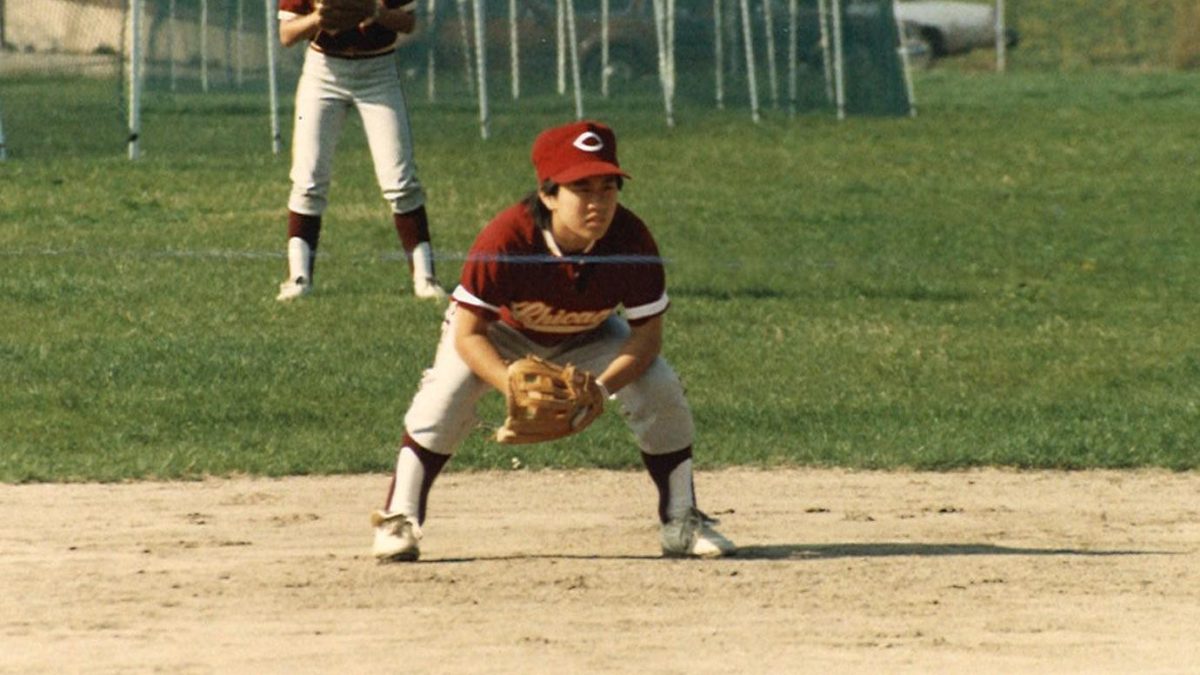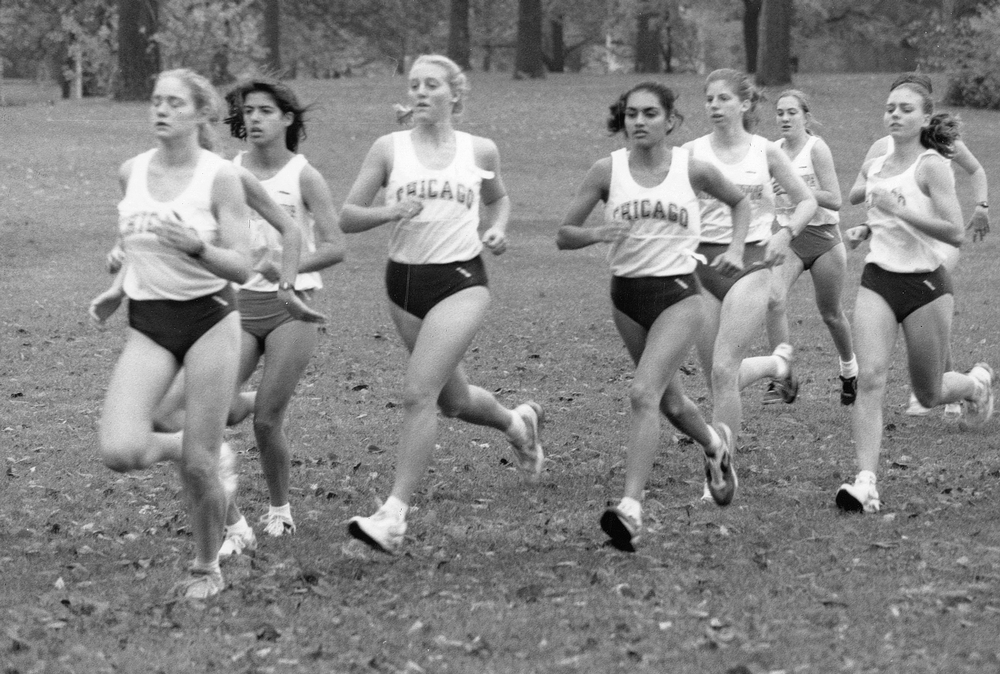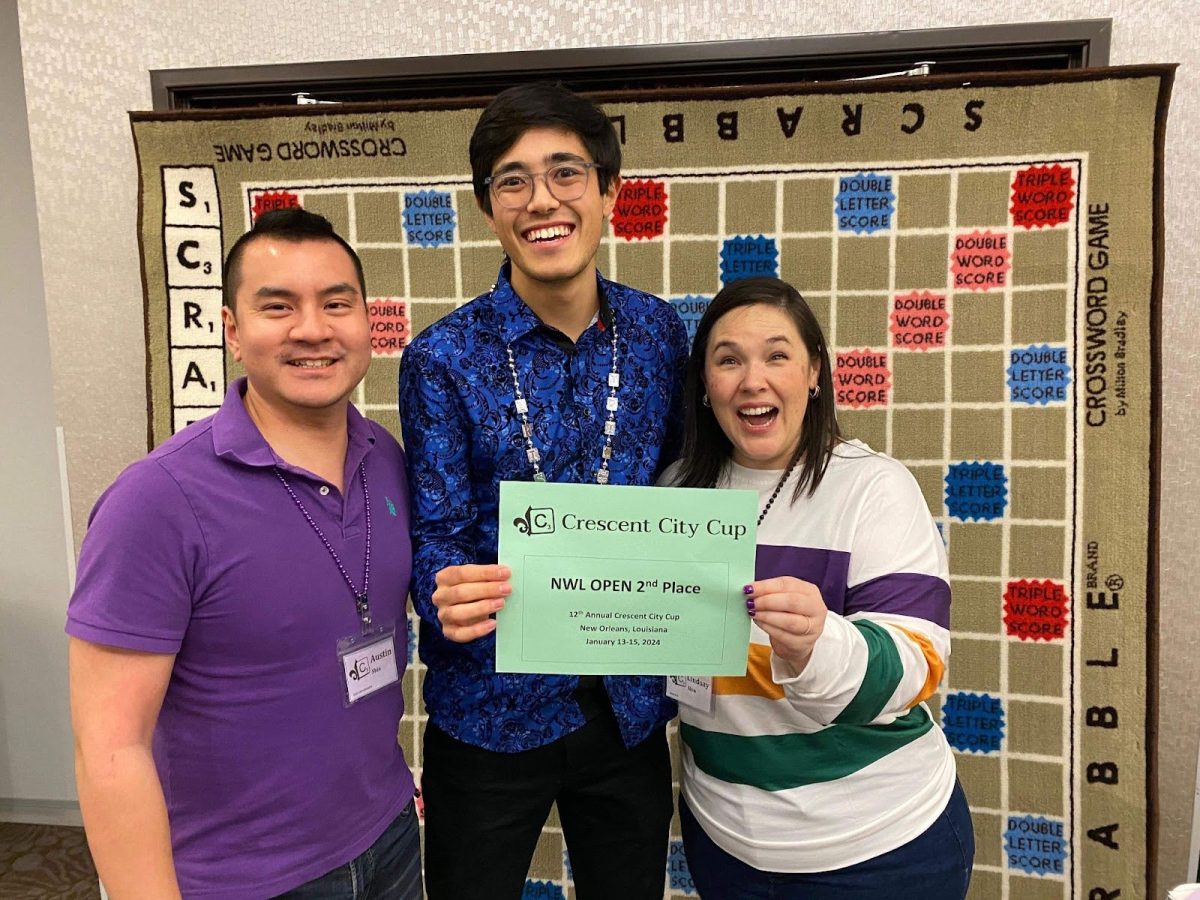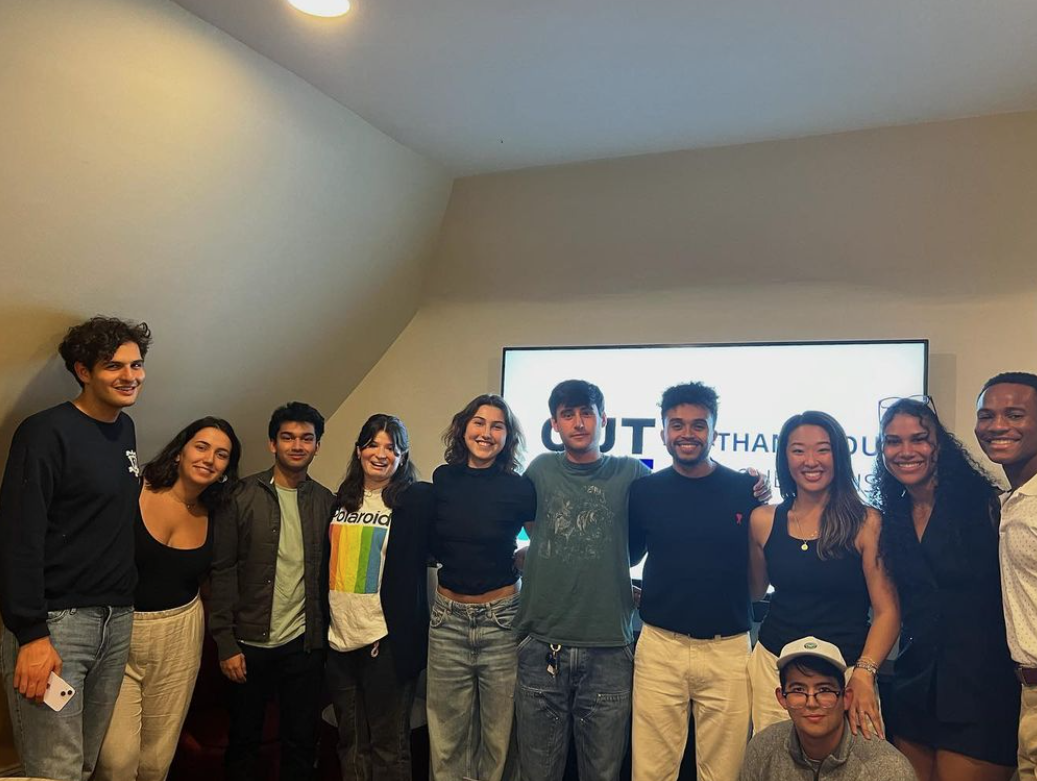Sitting in the central rotunda of Ratner Athletics Center, the first-ever Heisman Trophy, awarded to the nation’s top collegiate football player and bestowed upon Jay Berwanger (A.B. ’35) in 1935, resides as a relic of athletic lore and a reminder of the University’s illustrious tradition of athletic success in the early 20th century. Athletic director and legendary football coach Alonzo Amos Stagg led the so-dubbed “Monsters of the Midway” to two national championships and seven Big 10 titles; future astronomer and telescope namesake Edwin Hubble secured multiple basketball Big 10 championships in his four-year playing career.
However, in the years following 1935, the University forsook the Big 10, replacing its 50,000-seat football stadium in favor of Regenstein Library and even eliminating its football team, which eventually returned in 1969. The University, once a founding member of the Big 10, became a founding member of the University Athletic Association (UAA) in the NCAA’s Division III in 1987. The athletics department continued to produce All-Americans and Rhodes Scholars, but in the relative shadows of a school that was defined near absolutely by its notorious academic rigor and eccentricity.
However, six years ago, current Director of Athletics and Recreation Erin McDermott saw an opportunity for reinvigoration and reinvention: “As I started looking at it more, I realized it was a really exciting time to be at [UChicago] because it’s going through a transformational era of how they view the undergraduate student experience…. The College wanted to get rid of this idea that this was only for those who don’t care about anything but being in their books and it’s the place where fun goes to die…. So I thought, ‘This is fun.’ There’s a comfort level in knowing that philosophically we were probably pretty well aligned with this experience for students, but also that I could be part of a place that was really growing and developing and transforming.”
No stranger to academically rigorous schools, McDermott accepted the position in July 2013 after a stint at Princeton, where she served as the Deputy Director of Athletics. McDermott admits that “it was just the name recognition” that first caught her attention. “Having been at schools that have that same kind of prestige and reputation, I knew that at [UChicago] the student-athlete experience was going to align with how I think it should be—that it is educational, that it should be education first…. At first flush, that was the interest,” said McDermott.
In her six-year tenure, McDermott has overseen a run of success unprecedented in the modern era. UChicago has captured 17 conference championships and seven individual national championships, advanced three programs to NCAA semifinals, and finished in the top 20 for five consecutive years in the Directors’ Cup ranking of the 450 Division III athletic programs. In addition, the athletic department has signed a contract with Adidas and its branding has been overhauled. For her efforts, she was recognized as the National Association of Collegiate Directors of Athletics Athletic Director of the Year in March 2019.
Despite all of the on-field success, McDermott counts an off-field success as her most memorable experience: the addition of women’s lacrosse as the school’s 18th varsity sport. It jumps out to her because she “knew that was the beginning of something really special” as the realization of “a goal and team that would be such a natural fit here.”
A former collegiate basketball player at Hofstra, McDermott relies on her student-athlete experience as a guide in the tough decisions she has to make. In her role as “the coach of the coaches,” she is “first and foremost here for the students and the student-athletes.”
“I think that experience was just critical to how I lead being an athletic director because I know what it was like and I know what I was trying to achieve, and I feel like it’s similar to what [the UChicago athletes] are,” said McDermott. She also points to her ability as “a relationship builder” as a product of her time as a collegiate athlete.
Of any team experience, she stated, “You can be vastly different in many ways, and yet you have to figure out pretty quickly how to work together and achieve these things that you are trying to do and a common kind of team way…. So I think that skillset was something that I had to hone more in my college days just because of the makeup of the team and some of the adversity that we experienced, becoming a captain of that team.”
She saw the benefits of the collegiate sports but also believed that “a way to help resolve [gender inequities] is for different people to be in the decision-making process, for more women to be present and around the table when decisions are made.”
According to a Higher Education Publications, 30 percent of NCAA Division III athletic directors are women—twice as high as in Division I (12 percent) and Division II (14 percent). McDermott has noticed significant strides since she began in the industry, but stated that there is “still growth and progress to be made.”
McDermott understands the unique challenges of balancing academics and athletics for student-athletes at a school like UChicago: “There’s an expectation from our students that they are here to be students and that they are allowed to kind of pursue academically what they really hope and dream for themselves…. I think [the athletes] are dedicated to being the best that they can be in whatever they're doing, to be successful both as a student and as an athlete.”
She believes that the University is also able to offer its student athletes a holistic experience, in part due to its status in Division III. “I knew we were going to have top notch students, but within Division III, we also would have top notch athletes who were going to be just amazing people to work with every day,” McDermott said, describing how UChicago is “a big fish.”
Despite the myriad athletic successes, McDermott still occasionally grapples with the University’s public misperception about sports, a stereotype that she combats with “a little humor when it’s appropriate.” She recalled giving a presentation in her first year to the development office. She was told beforehand that there were faculty and staff who didn’t even realize that the University had sports teams, and so she started her presentation with the basics—a slide with just the name of the department. Since that initial introduction, McDermott has strived to “spread that message [that we have a thriving athletic department that can be even better] in every forum that I possibly can.”
An avid yogi and explorer of the Chicago food scene, McDermott carries plans to improve the athletic department’s reach going forward, focusing on creating additional recreational and varsity space, particularly “greater stadium atmospheres” and “stand-alone spaces” for softball, baseball, and soccer. She also hopes to increase alumni engagement and departmental fundraising through raised awareness.
“I'm trying to use all those moments that I can to promote our teams but really most importantly promote our student athletes and who they are and not just their athletic accolades, but their whole person. There are some of our most engaged students on campus and there are some of our best leaders on campus,” said McDermott.
Competitive achievement has flourished under her leadership, and she expects this legacy to continue as championship culture and teams “[create] affinity for the University and community amongst our athletes.”
“If [our athletes] are going to commit the kind of time that they do to their sport, then we should be good at it. If we’re going to be at a place that is a place of eminence and of excellence, then we should be reflective of that. Because of that stature, we’re able to attract some of the best talent, then we should be able to win our fair share of UAA championships and be competitive at the national level.”









